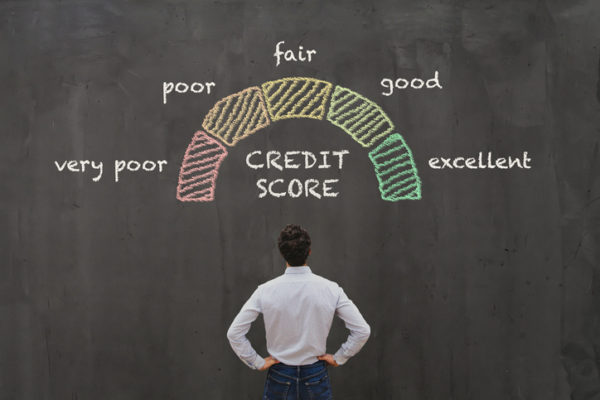 "I can't file for bankruptcy because it will ruin my credit forever."
"I can't file for bankruptcy because it will ruin my credit forever."
We hear this all the time; it's one of the most common myths about bankruptcy. A lot of folks who could really benefit from bankruptcy are understandably worried about how it might affect their credit score — and by extension, their future ability to buy a house, rent an apartment, or even get a job.
The reality is that while bankruptcy does affect your credit, you have to look at it in context. If the alternative is continuing to have unpaid and delinquent debts, then bankruptcy is actually the first step toward better credit.
Bankruptcy does lower your credit score, but how much depends on the situation
Like many myths, the idea that bankruptcy ruins your credit score is based on a half-truth. Bankruptcy does appear on your credit report, and it's there for quite some time. If you file Chapter 7, it stays on your credit report for 10 years from the date of final discharge, although some of the individual debts may drop off your credit report before that. A Chapter 13 bankruptcy stays on your credit report for 7 years from the date of final discharge.
How much bankruptcy actually lowers your credit score mostly depends on what your credit score was prior to filing bankruptcy. People with high credit scores might see those scores drop by as much as 200 points. However, if your credit score is already low, it may not change all that much; it's pretty uncommon to see scores below 500 even after a bankruptcy filing.
The type of bankruptcy you file also affects your credit score. Chapter 7 generally has a bigger impact because it discharges debts entirely (meaning you don't have to repay), so lenders will see you as a bigger risk. Chapter 13 means you're at least repaying some portion of your reorganized debts, so while it still hurts your credit score, it's not viewed as negatively by lenders.
You can take steps to rebuild your credit soon after bankruptcy
Just because bankruptcy appears on your credit report for 7-10 years doesn't mean you have to wait 7-10 years to start improving your score. Once your bankruptcy is complete, you have the opportunity to start building a better credit history pretty much right away.
Your first step is to make sure you're on top of your payments on any debts that weren't discharged in the bankruptcy, such as student loans. Consider opening a secured credit card — that is, a card that you open with a deposit as collateral — and using it for essential purchases (like bills or groceries) to show lenders that you can use credit responsibly. As you continue to improve your credit history, you may be able to get a car loan or another large loan to build a diverse mix of debts.
This might sound difficult, but we've worked with many people in this situation and seen the results. In general, we see most of our clients' credit scores improve within 12-18 months after bankruptcy, depending on credit history and overall financial situation. In that timeframe, you can usually get back into the fair credit range (580-669), which is enough to qualify for some types of mortgages and most other types of loans. It does take a lot longer to get to good or excellent credit, but again, that would have been impossible if you stayed in overwhelming debt.
An experienced bankruptcy lawyer can get you on the path to better credit
The key takeaway here is that bankruptcy doesn't ruin your credit score; delinquent debt does. While there will be some short-term pain, bankruptcy opens a path to improve your credit score in the medium term, and getting a financial reset will put you in a better position to have excellent credit in the long term.
If you're considering filing for bankruptcy but still have concerns about your credit score, we'd be happy to answer those questions and explain how bankruptcy would affect your individual situation. Give us a call or contact us online for a free consultation with Benjamin R. Matthews & Associates, LLC.
